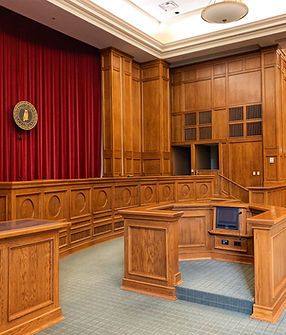About Us
Our Focus
The Collaborative Law Group is dedicated to providing expert legal services with a focus on collaborative law. Our experienced lawyers specialize in resolving legal matters amicably through collaborative approaches. We aim to establish a strong online presence to reach a wider audience and offer our expertise to those in need.
Real People. Real Results.
"I had a consultation with Mr. Knust this week. He was great. Mr. Knust is very knowledgeable. He listened to my concerns and offered options on how I could proceed. Mr. Knust was kind and I felt that he was interested in my concerns. I had a very pleasant experience. If I am unable to resolve my concerns at the lower level, I will definitely use his services. Thank you Mr. Knust."
Nisha C.
"The Collaborative Law Group has been highly supportive of my divorce case. From day one communication has been stellar. The office and team have kept me updated on my divorce case 24/7. The only hold-up was the courts but that is something they walked me through and explained. I highly recommend this firm for all your divorce and family law needs. I couldn't have found a better law office. Professionalism at its highest! There's nothing like having a firm that's knowledgeable of the law with the expertise to navigate the process for an overly expected outcome."
Daniella L.
"Jac Knust is the Jack of all trades. While collaborative family law is his specialty, he also handles business law and litigation as well as estate planning with top tier service. His team approach in collaborative family law will get you through a terrible time with focus on the whole family and respect for all. He is an experienced mediator with over 40 years of experience. I would highly recommend him for any of your general law practice needs."
Anna R.

Practice Areas
Welcome to a comprehensive range of legal services, offering expert assistance across various areas. Navigate the complexities of divorce and mediation with skilled support or receive guidance in real estate and collaborative law. Services also include expertise in criminal law, traffic law, guardianship, estate planning, probate, business matters, and landlord-tenant issues. Each legal concern is addressed with personalized support and effective solutions tailored to individual needs.














